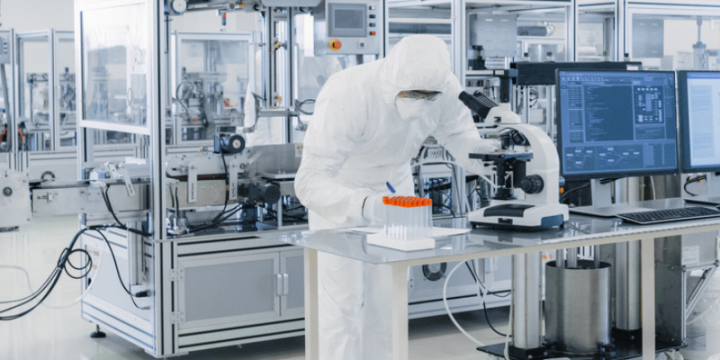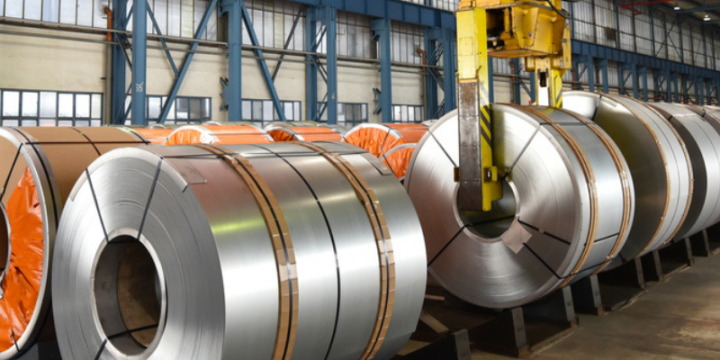Delft aircraft manufacturer Maeve Aerospace is poised to change the aviation industry. Their new hybrid-electric aircraft technology, which combines traditional combustion engines with electric propulsion, significantly reduces emissions and has the potential to excite the next generation of aircraft manufacturers.
Photo: InnovationQuarter
InnovationQuarter spoke to Jan Willem Heinen, CEO and Erwin Koenraads, CFO of Maeve about their ambitious plan to set up their own flight program. An achievement that has only been achieved by a few in Dutch (aviation) history. This in a sector that is under pressure to find innovative solutions that contribute to global climate goals. Jan Willem started in 2021 as co-founder of Maeve, and Erwin joined as CFO in 2022 to focus on the airspace. In 2022, Maeve grew wings: the company raised 3.6 million euros from angel investors.
In the Aerospace Delta, the leading South Holland cluster and the umbrella name for a sector in which 80% of all Dutch aviation activities take place, they were received with some skepticism among colleagues. The idea of building a fully electrically powered aircraft was seen as too ambitious and financially risky, given the high costs and technical challenges. But – Maeve stuck to its dream. “We went back to our roots: we wanted to contribute to more sustainable aviation and make a real impact. I can say with confidence that every employee at Maeve feels this way.”
A Tough Market: Entering the Aviation Industry
Entering the aviation industry is no easy task. The costs are high and the technical complexity is great. Worldwide, there are only a few large players who have a firm grip on the market. Nevertheless, Maeve shows that it is possible to set up a serious aircraft program as a startup. “Successful aviation programs usually come from large players such as Airbus, Boeing and Embraer,” Erwin explains. “The development costs billions and requires thousands of employees, but at the same time you get the feeling that there is enormous potential.”
From fully electric to hybrid-electric
What had to happen to get here? At the end of 2023, Maeve decided to change course and switch to a hybrid-electric powered aircraft. This decision was based on discussions with investors and a review of the technological possibilities. Jan Willem and his team wanted to shift their focus to regional aviation. “A fully electric aircraft is such a small niche in aviation that it has little chance of success,” says Erwin. “You can’t find any financiers for it, because the costs are too high. However, a hybrid-electric aircraft can serve a broader market. With a hybrid aircraft, we can operate many more flights with lower emissions, instead of limiting ourselves to a small number of completely zero-emission flights.” Maeve is targeting the regional aviation market with their aircraft, with a capacity of 76 to 100 seats and a range of 2,300 kilometers.
Their latest project, the M80, combines the efficiency of a turboprop with the speed of a jet, and ensures up to 40% lower emissions than comparable aircraft. While traditional regional jets often rely on combustion engines alone, the M80 uses an innovative hybrid propulsion system that uses both fuel and electricity. This not only reduces emissions but also enables more fuel-efficient and quieter flying. The design therefore offers an attractive solution for airlines looking to reduce their environmental footprint without sacrificing performance or operational flexibility. Maeve has been working with aircraft engine manufacturer Pratt & Whitney Canada since July 2024, with Maeve responsible for aircraft integration and Pratt & Whitney for the propulsion. The company also expects to announce a number of further partnerships with major players in the aircraft industry in the near future.
The important role of team and partners
“When we started, we were a bit inexperienced as newcomers from e-mobility,” Erwin says with a laugh. “But with the arrival of our CTO Martin Nüsseler in 2023, everything changed.” Martin brought structure to the design and development of the M80, improved technical processes, and his experience with large aviation programs proved invaluable. “Martin has previously led programs such as the Airbus A350 and A400M. His knowledge was a real game changer.”
At an early stage, InnovationQuarter Capital and the European Innovation Council invested in the startup. Erwin and Jan Willem were very happy with the support: “These parties put their money into something because they have done thorough research, done due diligence, and all the boxes have been ticked,” says Erwin. “This gave us credibility: the idea that we had reached another level. Don't get me wrong, in aviation this is still the beginning. You are not suddenly ten steps further, but half a step forward, and that half step was exactly what helped us to bind other parties to us and convince them of our progress.”
The strong aviation sector in South Holland
“The aviation sector in South Holland is strong and extends beyond the provincial borders,” says Jan Willem. The region combines high-level talent, leading knowledge institutions such as TU Delft, and a robust network of innovative companies. In addition, the presence of facilities such as Rotterdam-The Hague Innovation Airport (RHIA) provides the ideal test environment to develop and validate new technologies. “Thanks to these facilities and collaborations, we were able to make real progress. We often jokingly say that if South Holland succeeds in successfully launching multiple aircraft programs, we can put the region on the map as the Silicon Valley of aviation. An ideal springboard for startups that want to innovate in aviation.”
At the same time, the connection with Munich is an indispensable link in the development of our ecosystem,” says Erwin. Munich is a true center for the established aviation industry, the former home of Airbus, and a deep-rooted infrastructure that works at scale. ” This makes the collaboration with Munich particularly valuable for Maeve, because we can benefit from the established knowledge and scale that is available there.
“When you are active in a region, you become part of a network. You meet the right people, attend network meetings, and get introductions. That game works the same everywhere,” says Erwin. “But the impact of InnovationQuarter in South Holland is many times greater than in Bavaria, because there are far fewer organizations involved here and there are fewer different layers of those networks. That really makes the difference tangible.”
What is the role of InnovationQuarter?
Maeve plans to open a new office in the city centre of Delft soon, with space for 50 employees. InnovationQuarter has supported them from the start, not only financially, but also by connecting them with the right people and providing strategic advice. “Without that network and their support, we wouldn’t be where we are now,” says Erwin. InnovationQuarter has allowed us to seriously participate in the Dutch aviation sector. A large part of our success comes from the interconnectedness of networks in this region. This network has helped us to grow with confidence, convince investors, and build partnerships that are essential to our success.” Maeve, like InnovationQuarter, is involved in Aviation in Transition, a National Growth Fund programme in which various parties, including the government, knowledge institutions and companies, work together to make the aviation sector more sustainable.
Collaboration in Aerospace Delta
Aerospace Delta is a fast-growing cluster of 260 companies and knowledge institutions and 9,000 employees in the aerospace, aviation and drone sector. The region brings together many different parties: from innovative companies in engineering to large manufacturers and suppliers. Academic institutions such as TU Delft, which is among the top 3 worldwide with its Aerospace Engineering Faculty, Erasmus University and Leiden University provide their expertise in technology, economics and law. In addition, there are important research institutes such as ESA-ESTEC, TNO and SRON, and incubators such as YES!Delft and the Aerospace Innovation Hub, which help start-ups grow. The collaboration between all these parties, supported by the province of South Holland and local authorities, ensures that the aerospace cluster is becoming increasingly stronger, for example through the development of specialized test labs and innovation hubs.
Erwin continues: “South Holland lacks some elements that you see in other aviation clusters, such as tier-1 suppliers and aircraft manufacturers that are present on the market. That makes our role even more important, because as Maeve we can fill in part of that missing link. As a result, all those graduated engineers from TU Delft also get a significant party in the region. This can even mean that highly qualified personnel from abroad return to South Holland.”





